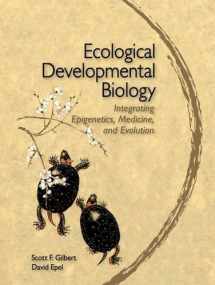
Ecological Developmental Biology: Integrating Epigenetics, Medicine, and Evolution
Book details
Summary
Description
When the molecular processes of epigenetics meet the ecological processes of phenotypic plasticity, the result is a revolutionary new field: ecological developmental biology, or eco-devo. This new science studies development in the real world of predators, pathogens, competitors, symbionts, toxic compounds, temperature changes, and nutritional differences. These environmental agents can result in changes to an individual s phenotype, often implemented when signals from the environment elicit epigenetic changes in gene expression. Ecological developmental biology is a truly integrative biology, detailing the interactions between developing organisms and their environmental contexts. Ecological developmental biology also provides a systems approach to the study of pathology, integrating the studies of diabetes, cancers, obesity, and the aging syndrome into the framework of an ecologically sensitive developmental biology. It looks at examples where the environment provides expected cues for normal development and where the organism develops improperly without such cues. Data from research on teratology, endocrine disruptors, and microbial symbioses, when integrated into a developmental context, may have enormous implications for human health as well as the overall health of Earth s ecosystems. The study of epigenetics changes in gene expression that are not the result of changes in a gene s DNA sequence has recently provided startling insights not only into mechanisms of development, but also into the mechanisms and processes of evolution. The notion that epialleles (changes in chromosome structure that alter gene expression) can be induced by environmental agents and transmitted across generations has altered our notions of evolution, as have new experiments documenting the genetic fixation of environmentally induced changes in development. The widespread use of symbiosis in development provides new targets for natural selection. Ecological developmental biology integrates these new ideas into an extended evolutionary synthesis that retains and enriches the notion of evolution by natural selection.


We would LOVE it if you could help us and other readers by reviewing the book
Book review



